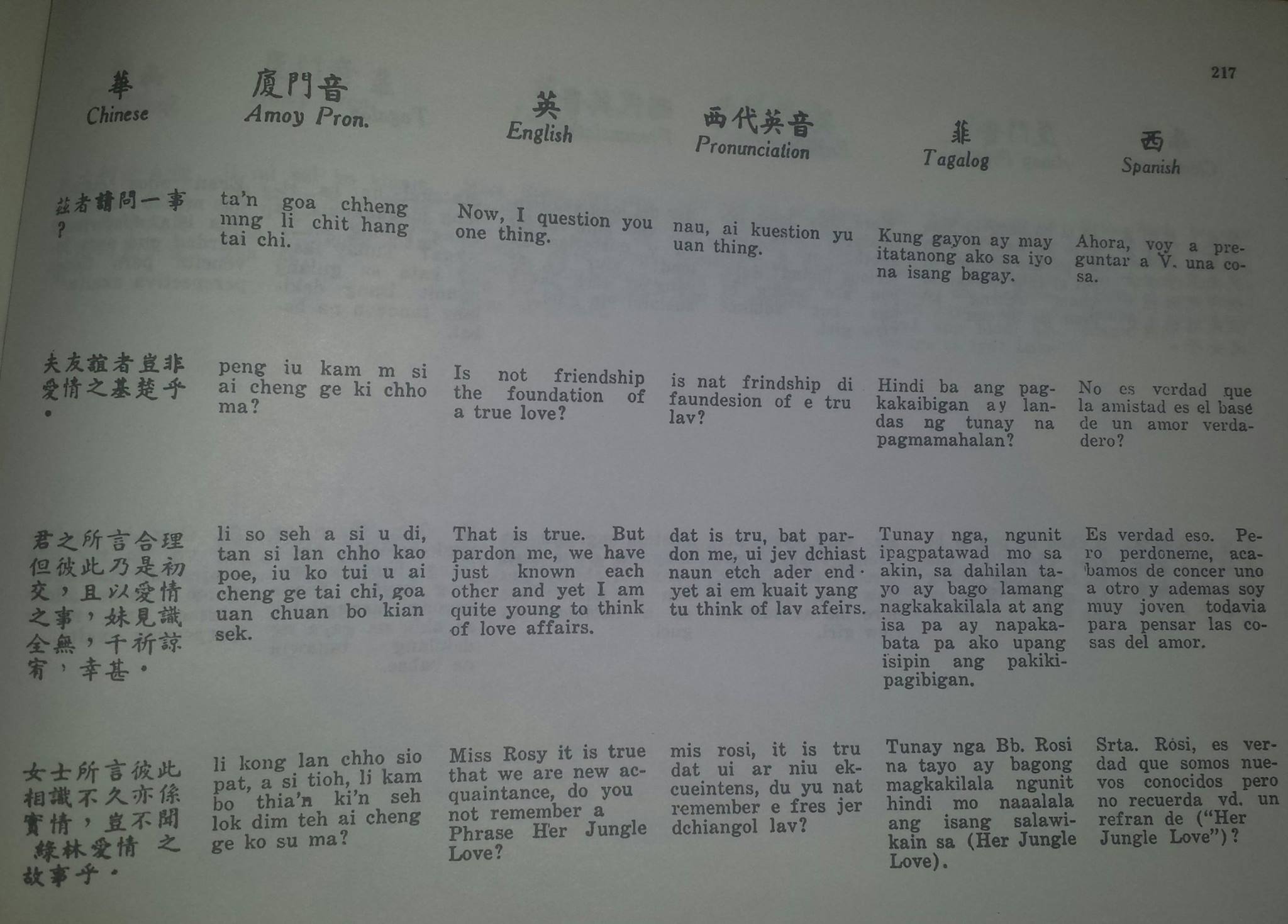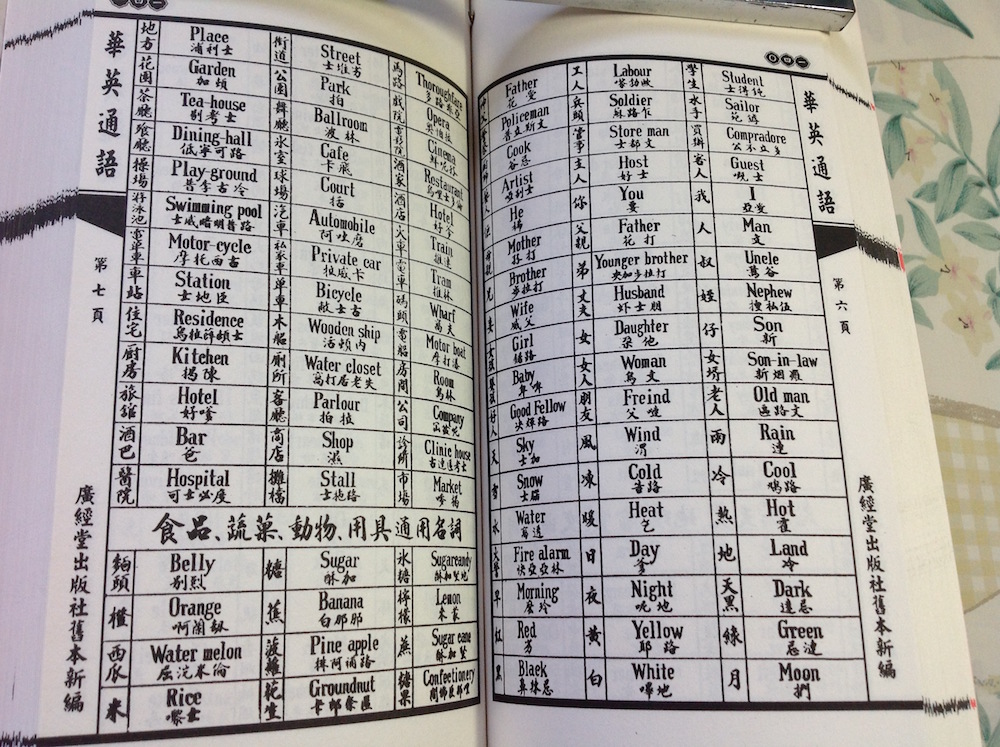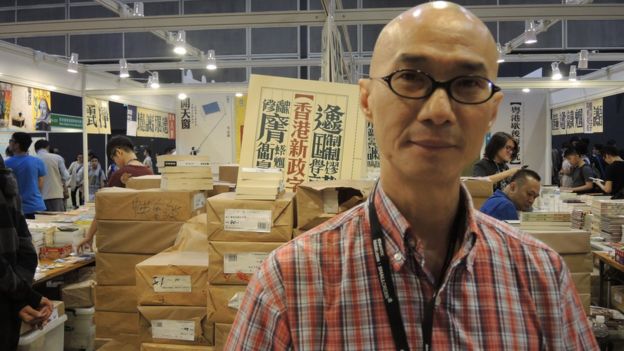Archive for Topolects
English-Cantonese and Hokkien-Malay phrasebooks
Ryan of Singapore sent me photographs of a section from a Chinese almanac that amounts to a ten-page English phrasebook phonetically annotated in Cantonese. Here are two of the pages (as usual, click to embiggen):
Read the rest of this entry »
Permalink Comments off
More old names for Singapore
We have already studied an old name for Singapore on the back of an envelope dating to 1901:
- "An old name for Singapore" (9/6/16)
Now, Ruben de Jong, relying on the works of Dutch scholars, has discovered several others.
Read the rest of this entry »
The perils of "7" and "9" in Cantonese
"Samsung’s Galaxy On7 goes official" (Marketing-Interactive, 9/28/16)
As we’ve covered shortly two weeks ago, the pronunciation of “7″ sounds like “penis” in Cantonese, and the latest Samsung Galaxy On7 launch has once again stirred up discussion on the internet in Hong Kong.
The Cantonese pronunciation of “On9″ [sic: there seems to be a mix-up here] is similar to slang meaning “stupid”, and many are saying the new release is a crossover between the two slang words.
Read the rest of this entry »
Confessions of an Ex-Hokkien Creationist
[This, a guest post by Lañitri Kirinputra, is the fourth and last in a series of four posts on Hokkien and related Southern Min / Minnan language issues. The first was "Eurasian eureka" (9/12/16), the second was "Hokkien in Singapore" (9/16/16), and the third was "Hoklo" (9/18/16).]
Read the rest of this entry »
Hoklo
[This is the third in a series of four planned posts on Hokkien and related Southern Min / Minnan language issues. The first was "Eurasian eureka" (9/12/16) and the second was "Hokkien in Singapore" (9/16/16).]
Some names for Taiwanese language in MSM:
Táiyǔ 台語 ("Taiwanese")
Táiwānhuà 台灣話 ("Taiwanese")
Fúlǎo 福佬 / Héluò 河洛 ("Hoklo")
Read the rest of this entry »
Hokkien in Singapore
[This is the second in a series of four planned posts on Hokkien and related Southern Min / Minnan language issues. The first was this: "Eurasian eureka" (9/12/16).]
Ryan of Singapore writes:
Here is some information about the scope and aims of the program itself: "New Hokkien drama aimed at seniors to be launched on Sep 9" (Channel NewsAsia, 9/1/16).
Read the rest of this entry »
Eurasian eureka
After reading the the latest series of Language Log posts on long range connections (see below for a listing), Geoff Wade suggested that I title the next post in this series as I have this one. If there ever was an occasion to do so, now is as good a moment as any, with the announcement of the publication of Chau Wu's extraordinary "Patterns of Sound Correspondence between Taiwanese and Germanic/Latin/Greek/Romance Lexicons, Part I", Sino-Platonic Papers, 262 (Aug., 2016), 239 pp. (free pdf).
Read the rest of this entry »
Italy is a dollop
When I wrote the following post, I had an intuition that Yīdàlì 一大粒 ("one big grain / granule / particle / tablet / pellet / kernel / bead / seed"), aside from being a pun for "Italy", meant "one big scoop", and I said as much in the last sentence of the post.
"Italy is one big grain" (9/6/16)
Now, looking into the matter further, I have found that I was right on the mark.
Read the rest of this entry »
Cantonese word list and parser
Political vocabulary and Brother Cream
BBC News has a nice article by Tzu-Wei Liu on "The politics of a martial arts book fair in Hong Kong" (7/26/16). The article is accompanied by six photographs; I will focus on the two that interest me most (because they are both language related), the third and the sixth.
Here's the third photograph:
Read the rest of this entry »
Sinitic languages in Singapore
From Coby Lubliner:
I have lately been watching an Australian TV series, "Serangoon Road," taking place in Singapore in the 1960s. The dialogue is mostly in English, but when it isn't it's in Mandarin, both among the Chinese and between them and the main character, an Australian who speaks it. I have so far heard no trace of any other Chinese. Is that realistic?
Read the rest of this entry »


